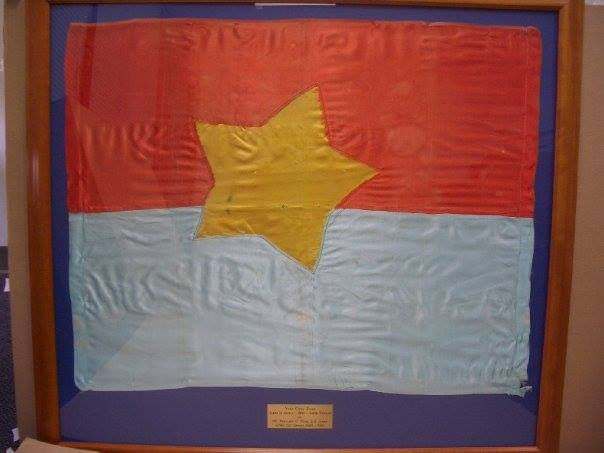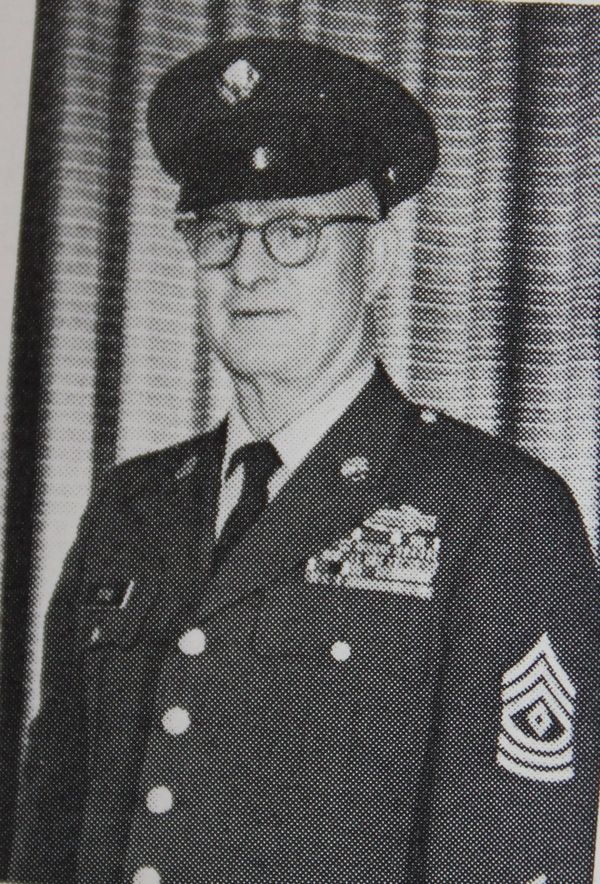One of my prized possessions is a frayed and stained silk flag. Not the Stars and Stripes we are used to, but one that is half red and half blue with a lopsided yellow star in the middle. It is a Viet Cong flag taken in battle in 1966 by one of the great men I have known. It has been one of my prized possessions for over 50 years.

While St. John’s may be one of the best-kept secrets in education, it is certainly no secret that some very remarkable men have worked there, molding young cadets. I was very fortunate to attend from 1971 to 1974 during the tenure of Commandant Lt. Col. Paul Kellogg USMC (ret.). Col. Kellogg put together a “Dream Team” of TAC Officers. This august group of senior NCOs included 1SG Bill Bunting, AUS (ret.), MSG Dwight Woodall, USAF (ret.), MSG Richard Lipps, USAF (ret.), and 1SG Benjamin C. Titus, AUS, (ret.). All of these men were quite remarkable, combat veterans and perfectly suited to St. John’s. Each of these men were very special in my life and each contributed to making me the man I am today. This is focused, however, on one particular individual, Ben Titus.
1SG Titus fought in Europe in WWII, followed by a combat tour in Korea and two combat tours in Vietnam. He never really spoke of his combat experiences but would relate stories that were usually very funny and often with a lesson for this young cadet. Physically, he was short in stature, very compact and muscular. There hadn’t been any hair under his green bus driver-style hat in many years, and he peered at you through black-rimmed glasses. His voice was gravelly and loud, and he often had a cigarette gripped in his teeth rather than his lips. He was very high energy and usually in motion. He was also blessed with a terrific sense of humor. Sarge was 60 years old when I knew him, and even then, he could grip a broomstick with both hands and jump over it without letting go, and then reverse the process. He also had another feat that still amazes me. He would say, “Give me a dime, Knight!” then squeeze it very hard for a moment and throw it on a table top. That dime would rock back and forth after being bent slightly by his fingers. Or, so it seemed.

I learned a great deal from 1SG Titus and the other TAC officers, much of which boiled down to personal integrity. Things such as: taking care of your troops; overcoming obstacles and getting the job done; facing your battles head-on; and telling the truth. Simple stuff really, but valuable beyond measure.
Just before I graduated in 1974, Sarge had me over to his house for a fine supper prepared by his wife Ethel. After dinner, Sarge gave me that stained and tattered old flag. He didn’t say a lot about how he came to have it except that the original owner did not survive the transaction. I could tell that it was important to him, and it became very important to me and has been one of my treasured “keepsakes” over all of these years.
I am sure that every cadet, no matter what era they come from, has their “Sarge.” This is one of the core strengths of St. John’s is bringing great men such as these into the lives of young cadets to teach them the important things they need to know. And while succeeding generations of cadets will never know him personally, the legacy lives on through the outstanding staff who have devoted themselves to our school and to the cadets who continue to tell their story.
The flag is now framed and hanging in St. John’s Military School Historical Museum to hopefully inspire both staff and cadets and share some of the history of one of the important contributors to St. John’s Military School. I did take the opportunity to talk to Sarge and thank him for all he had done for me some twenty years after I graduated. One of his favorite hobbies was fishing, and on September 19, 2000, 1SG Benjamin C. Titus quietly passed away after cleaning a stringer of fish he had just caught.
— Cadet Lt. Col. Roy A. Knight III BCO Class of 1974
